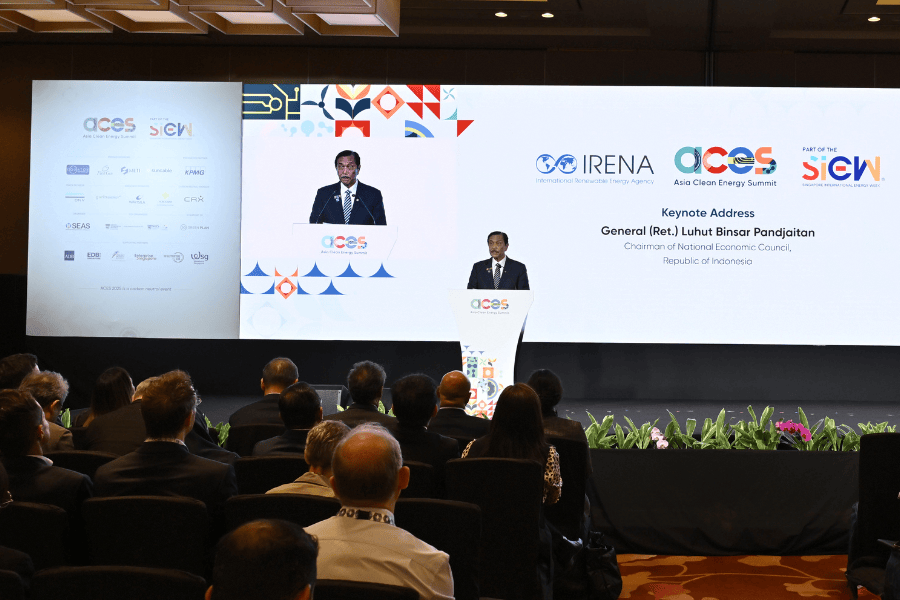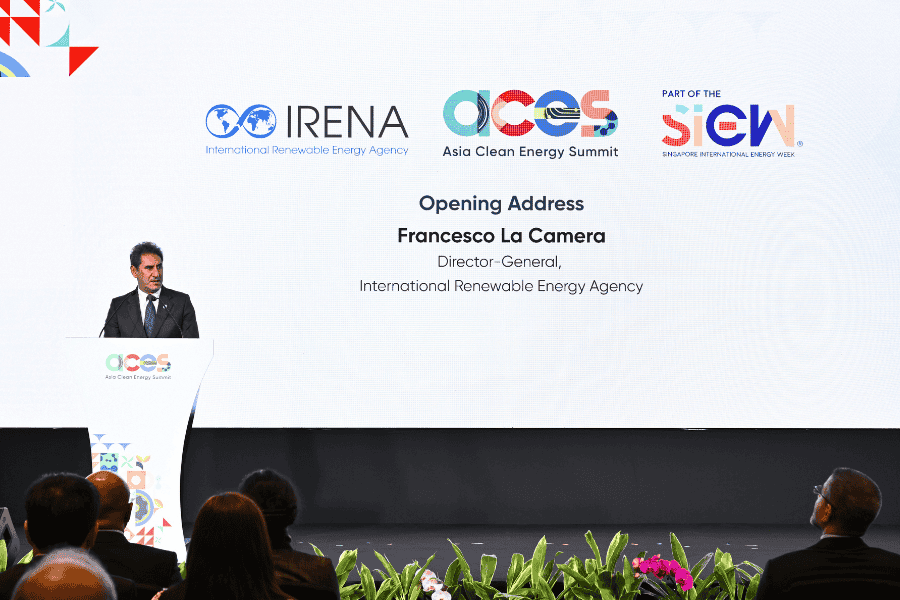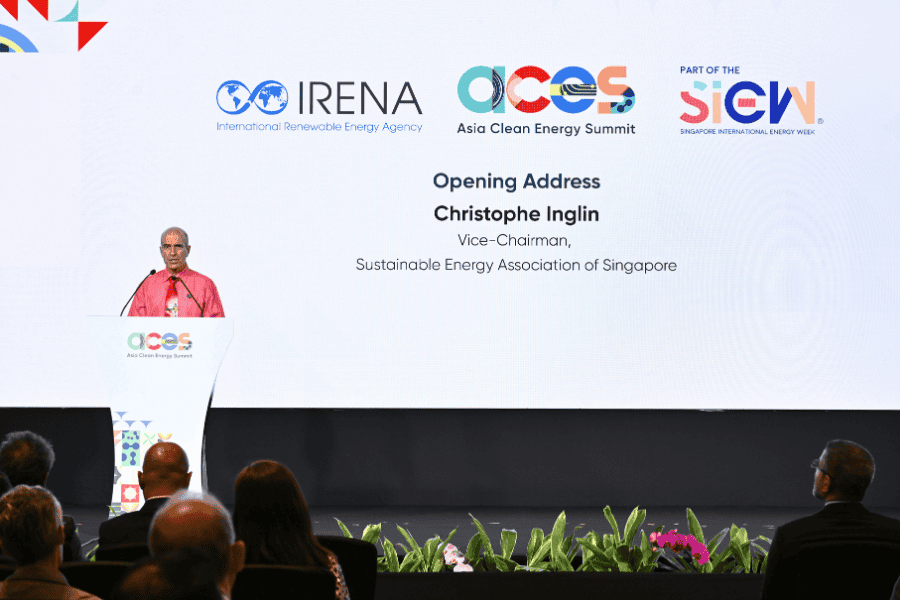Southeast Asia's clean energy transition is gaining momentum. But ambition alone will not take the region to net zero. At the Singapore-International Renewable Energy Agency (IRENA) High-Level Forum, three leaders shared a common message in their opening addresses. Building the right systems today will shape ASEAN's energy future.

General (Ret.) Luhut Binsar Pandjaitan, Chairman of National Economic Council, Republic of Indonesia, Francesco La Camera, Director-General, IRENA, and Christophe Inglin, Vice Chairman, Sustainable Energy Association of Singapore (SEAS) each offered a distinct but complementary perspective.
Their insights brought the SIEW 2025 theme, 'Envisioning Energy Tomorrow, Building Systems Today' to life. They showed how collaboration, innovation, and investment can power a more connected, low-carbon ASEAN.
Building technological and human systems for a just and inclusive transition
General Luhut described Indonesia's energy transition as both an economic and intergenerational responsibility. The choices made today, he said, will decide whether future generations inherit a modern, green economy or one still tied to fossil fuels.
He outlined Indonesia's vast renewable potential of over 300,000 gigawatts (GW). He also highlighted the country's commitment to transform that potential through technology and collaboration. Indonesia is developing artificial intelligence (AI)-based tools to optimise grid management, achieving up to 8 percent energy savings in early trials. It is also exploring small modular reactors (SMRs) for island electrification, sustainable aviation fuel from local bioresources, and carbon capture and storage (CCS).
General Luhut emphasised that Indonesia cannot make this transition alone. He called for blended finance, regional cooperation, and inclusive workforce retraining to ensure that the shift to clean energy remains both fair and resilient. He added that the energy transition is not a cost, but an investment in Indonesia's future.
Policy and investment systems to accelerate scale

Mr La Camera highlighted that the world added a record 500 GW of renewable capacity in 2024. This marked a 15 percent year-on-year increase and the third consecutive year of record expansion. Yet, Southeast Asia contributed just over 5 GW.
To stay on the 1.5°C pathway, he said the region must triple its renewable capacity by 2030. This means reaching around 370 GW and adding about 40 GW per year.
He also announced the launch of IRENA's Accelerated Partnership for Renewable Energy in Southeast Asia (APRESA). The new framework will strengthen policy alignment, promote industrialisation through clean energy, and enhance infrastructure for renewable deployment. It will support the ASEAN Plan of Action for Energy Cooperation (APAEC) 2026–2030 and deepen IRENA's technical partnership with the region.
While progress is accelerating globally, Mr La Camera noted that infrastructure, legal and market design barriers, along with limited institutional capacity, continue to hold back clean energy investment. He called for stronger political will and academic collaboration to ensure Southeast Asia's clean energy growth keeps pace with global ambition.
Regional and digital systems to translate ambition into action

Mr Inglin reminded the forum that Southeast Asia's renewable transformation is accelerating but still far from its potential. The region added about 5 GW of new renewable capacity last year. He noted that this was fewer than 1 percent of global growth, even though Southeast Asia is home to 8.5 percent of the world's population.
He urged policymakers and industry leaders to scale deployment faster and strengthen regional interconnection. He also highlighted Singapore's role as a trusted regional connector. Projects such as the ASEAN Power Grid and the Lao PDR–Thailand–Malaysia–Singapore Power Integration Project (LTMS-PIP) demonstrate how collaboration can enhance energy security and affordability across borders.
The SEAS Digital Marketplace, launched last year, was highlighted as a platform linking financiers, developers and technology providers across Asia. By improving transparency and access to opportunities, Mr Inglin said digital platforms can help make clean energy projects more investable and inclusive.
From policy frameworks to digital platforms and new technologies, the three leaders showed how ASEAN can turn ambition into systems that power its energy future.
Stay tuned as the conversation evolves throughout the day. Follow @SIEW_sg on Telegram and X (formerly Twitter) for the latest insights